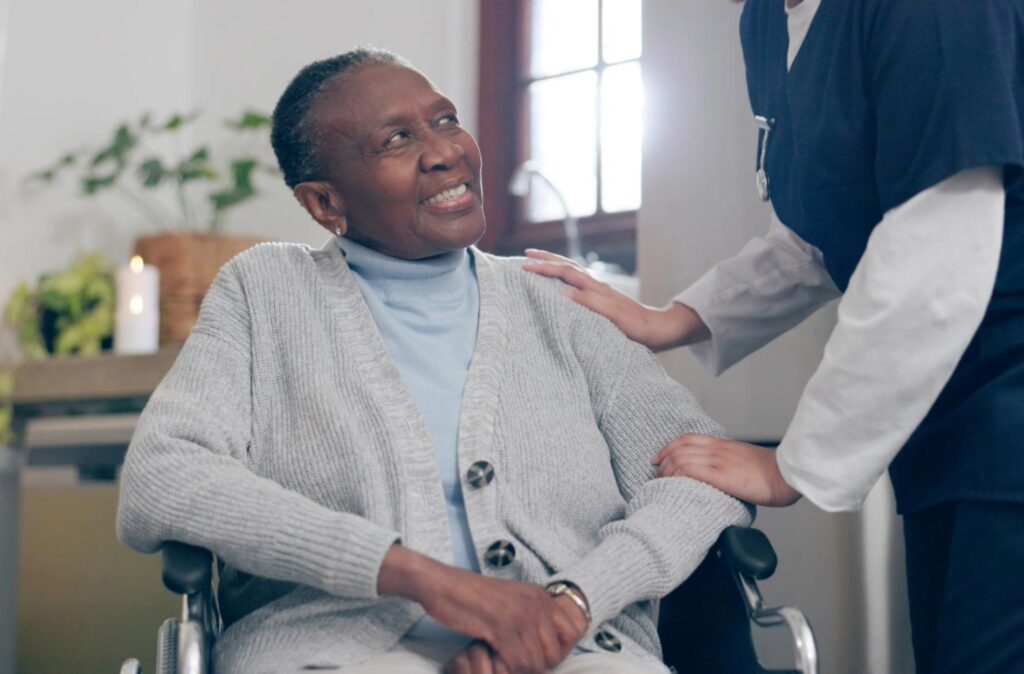Winter in Ohio brings more than just cold. The season brings changes that can weigh heavy on people’s feelings, especially for older adults or anyone facing illness or loss. Shorter days, longer nights, and being indoors more often can stir up sadness, loneliness, or stress. Busy holidays sometimes add their own kind of challenge, just when peace is most needed. When you add hospice or serious health issues on top of the season, it can be an even more tender time for families.
Talking about behavioral health in Cuyahoga means looking at more than mental health by itself. It is about the way emotions, moods, and actions come together, especially when life slows down and routines change in winter. People need more connection, patience, and support—sometimes in ways that are new. If you are curious how mood or behavior can shift during winter, especially for hospice patients and those close to them, the rest of this article will help you notice the signs and understand what loving support looks like.
How Cold Weather Can Affect Emotions and Behavior
As winter settles in, it changes how people feel and behave every day. Fewer hours of sunlight and chilly weather keep people indoors, and this can lead to feeling more tired or pulled back from daily life. This is especially true for someone who is sick or already spends a lot of time resting.
Less daylight can throw off sleep schedules. Someone may wake up tired, even after sleeping through the night. Being inside might stop them from moving around or chatting with neighbors, making regular routines fade away. What starts as a harmless few days indoors can quickly turn into weeks without sunlight or fresh air. People might notice sadness, low energy, or restlessness growing quietly over time.
Staying inside also stirs up frustration or anxiety, especially if mobility is limited. A person may feel bored, disconnected, or even short-tempered. Sometimes, they get quieter, wander in thought, or seem upset for no clear reason. These changes do not show weakness—they are natural reactions to a season that makes life feel smaller and slower. Emotional health matters as much as physical comfort, and winter might be the most important season to pay attention to both.
Recognizing Signs Someone Might Need Extra Support
Sometimes, the warning signs that someone needs emotional care are clear. Other times, they come as small differences you might overlook at first. If you keep an eye out for even subtle changes, it can make a world of difference.
Common signs someone may need support include:
– Eating much less, skipping meals, or saying they are not hungry, even when offered favorite foods
– Sleep changes, like napping most of the day or not sleeping well at night
– Acting more worried or on edge, sometimes responding sharply to small things
– Being unusually quiet, not starting or joining conversations they used to enjoy
– Seeming confused or unable to focus on regular tasks
It is not just about dramatic mood swings. Noticing small changes—a loss of interest in activities, a smile that comes less often, or gentle withdrawal—can be just as important as more obvious signs. Someone who used to watch TV every afternoon may now leave it off, or skip joining the family at the table.
Families who pay attention to both comfort and emotional well-being help everyone feel steadier. If you ever notice anything unusual and do not know what it means, it’s always okay to check in or ask for help. Real care means being present before a small worry grows into a bigger setback.
The Role of Hospice in Supporting Mental and Emotional Health
Hospice is about much more than pain management or medical needs. It is daily support designed to help both patient and family feel peaceful, seen, and able to rest. Emotional care matters just as much as medication, especially in the colder and quieter months.
Hospice staff often include licensed social workers and chaplains who check in regularly to see how patients and families are feeling. Nurses notice subtle changes. A quiet conversation or presence can mean as much as a medical treatment. Sometimes, it is about sitting together on a tough day. Other times, it might be about listening and making space for someone to talk or just be.
Care routines are designed for stability and familiarity, which often help people feel less anxious or alone. Seeing the same nurse or home health aide several times a week builds trust, and little moments—like remembering someone’s favorite blanket or song—bring comfort. On dark winter days, these routines and steady relationships can become anchors for both the patient and the family.
Hospice teams in Cuyahoga County can adapt visits or care plans during the holidays or when emotional challenges flare up. With a solid mix of medical, emotional, and spiritual support, the goal is to help people feel as balanced as possible, even when the season brings added heaviness. This full-circle approach is a core part of VNA of Ohio’s services, which bring licensed social workers, nurses, and chaplains to people’s homes when emotions run high or special support is needed.
Caring for the Caregivers During Stressful Seasons
Caregivers feel winter’s weight, too. Watching over someone in declining health during short, gray days can be draining in more ways than one. Holidays can increase the pressure, leaving caregivers pulled tight between cooking, hosting, and keeping up with medicine or appointments.
This stress grows little by little. It starts with extra fatigue and can move into irritability or sadness that sneaks into every corner of the day. Before long, the person providing care feels far from themselves—maybe even numb or closed off from the rest of the family.
Sharing your worries can help. Even a quick chat with a trusted friend, counselor, or another family member offers relief. Small breaks, like a nurse or home health aide stepping in for a short time, allow caregivers to step away and recharge. When support is woven into each week, everyone in the house feels steadier and less alone.
It is not a mistake to ask for help. In fact, it’s one way families take care of their own health, too. Professionals understand the burdens that winter brings for caregivers in Cuyahoga and are ready to help in ways that protect everyone’s well-being.
A Warmer Winter with Support and Understanding
Whole-person care means thinking about more than just physical pain or safety. During winter, emotional health matters more than ever. People need space to talk, share their fears, or simply sit together in the same room without saying a word.
Checking in matters. Noticing when someone looks sad or tired, even if they do not voice it, is one of the best forms of care there is. When emotional care is part of daily routines, winter feels less harsh and isolating.
Behavioral health in Cuyahoga covers more than sickness. It is about making time for kindness, comfort, and connection. When the days are short and the nights are cold, these things are often the difference between just getting through and finding warmth and meaning together. With gentle check-ins and emotional support, even the toughest season can feel a little lighter for everyone.
If someone close to you seems withdrawn this winter or is struggling through hospice, now may be a good time to think about how steady emotional support fits into their care. We know how the colder, quieter months in Cleveland can make the days feel longer and bring up heavier feelings. Our focus is always on the full picture—comfort, connection, and showing up when it matters most. If you’re thinking more about behavioral health in Cuyahoga during this season, VNA of Ohio is here to listen and walk with you through the next step.







